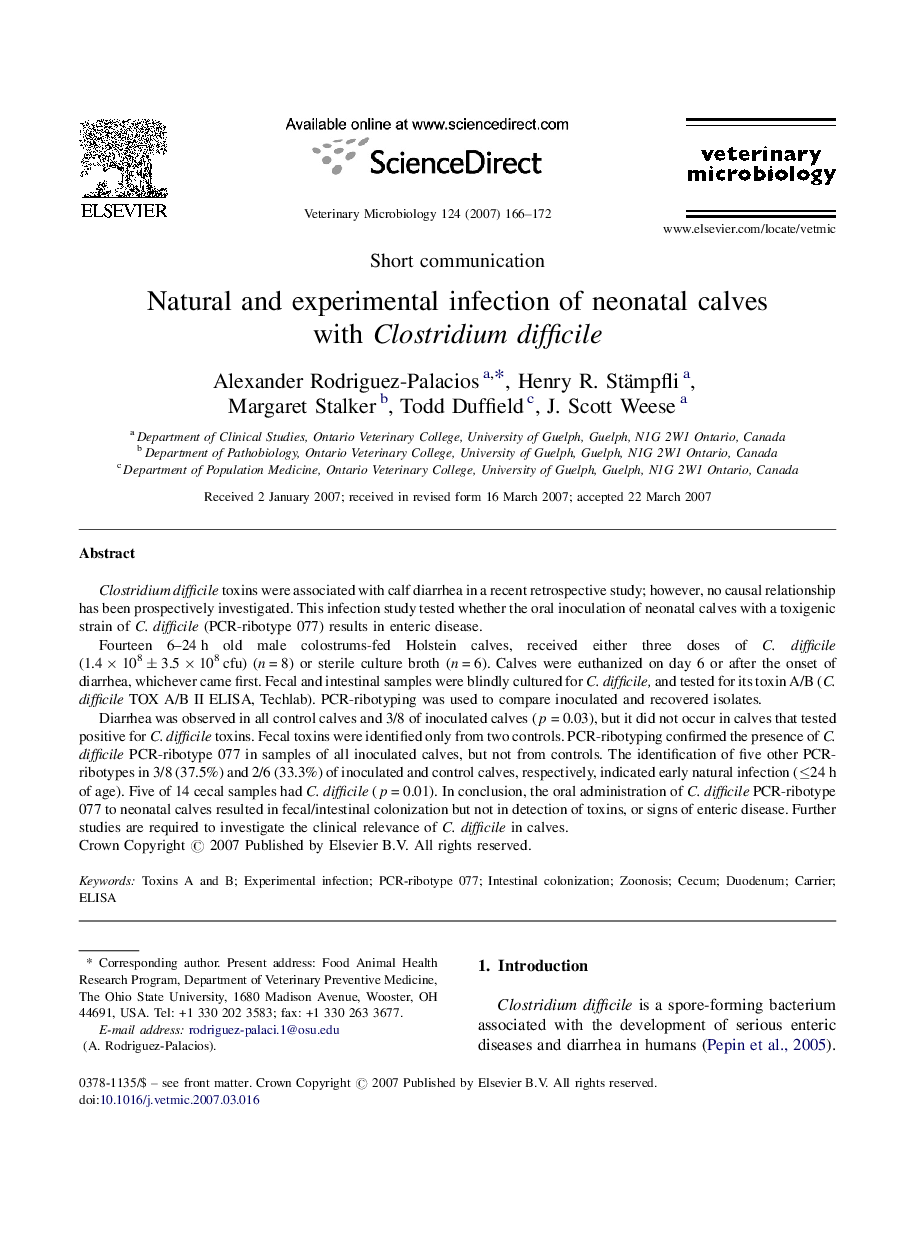| Article ID | Journal | Published Year | Pages | File Type |
|---|---|---|---|---|
| 2469233 | Veterinary Microbiology | 2007 | 7 Pages |
Clostridium difficile toxins were associated with calf diarrhea in a recent retrospective study; however, no causal relationship has been prospectively investigated. This infection study tested whether the oral inoculation of neonatal calves with a toxigenic strain of C. difficile (PCR-ribotype 077) results in enteric disease.Fourteen 6–24 h old male colostrums-fed Holstein calves, received either three doses of C. difficile (1.4 × 108 ± 3.5 × 108 cfu) (n = 8) or sterile culture broth (n = 6). Calves were euthanized on day 6 or after the onset of diarrhea, whichever came first. Fecal and intestinal samples were blindly cultured for C. difficile, and tested for its toxin A/B (C. difficile TOX A/B II ELISA, Techlab). PCR-ribotyping was used to compare inoculated and recovered isolates.Diarrhea was observed in all control calves and 3/8 of inoculated calves (p = 0.03), but it did not occur in calves that tested positive for C. difficile toxins. Fecal toxins were identified only from two controls. PCR-ribotyping confirmed the presence of C. difficile PCR-ribotype 077 in samples of all inoculated calves, but not from controls. The identification of five other PCR-ribotypes in 3/8 (37.5%) and 2/6 (33.3%) of inoculated and control calves, respectively, indicated early natural infection (≤24 h of age). Five of 14 cecal samples had C. difficile (p = 0.01). In conclusion, the oral administration of C. difficile PCR-ribotype 077 to neonatal calves resulted in fecal/intestinal colonization but not in detection of toxins, or signs of enteric disease. Further studies are required to investigate the clinical relevance of C. difficile in calves.
